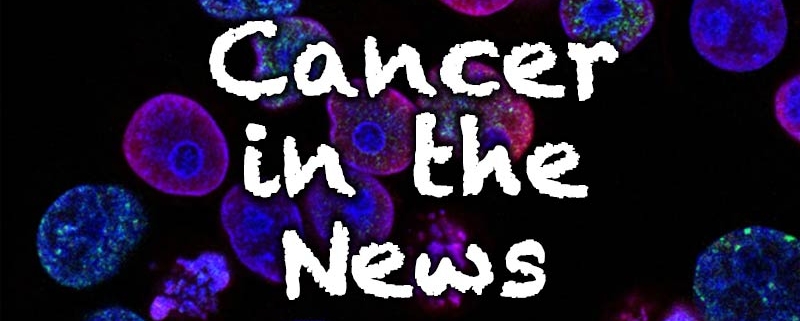Statistics, Detection, Cancer vaccines, Chemo from nature, Treatment Advances
19th issue: Contents
Statistics and trends
‘First Reliable Estimate’ of Breast Cancer Metastasis
1 in 7 Breast Cancers Are Overdiagnosed
Black Women Most at Risk for Lymphedema After ALND
Detection and Prevention
New blood test can spot more than 50 types of cancer — many hard to detect early
A Vaccine Trial for the Most Aggressive Form of Breast Cancer Just Started/ Breast Cancer Vaccine To Begin First-Of-Its-Kind Human Trial
Chemotherapy from nature
Cancer drug derived from ‘Caterpillar fungus’ smashes clinical trial
Advances in Treatment
Long-term complete response to intrathecal Herceptin with leptomeningeal carcinomatosis
Genomic Profiling Can Improve PFS in Metastatic Breast Cancer
Novel SERD Reduces Risk of Death by 30% in HR+ Breast Cancer
Metformin Does Not Improve Outcomes in Early Breast Cancer
Statistics and trends
• ’First Reliable Estimate’ of Breast Cancer Metastasis
“A massive meta-analysis of more than 400 studies conducted around the world, involving tens of thousands of women found that the overall risk of metastasis is between 6% and 22%, with younger women having a higher risk. While women aged 50 years or older when they were diagnosed with breast cancer have a risk of developing metastasis that ranged from 3.7% to 28.6%, women diagnosed with breast cancer before age 35 had a higher risk — 12.7% to 38%.”
My two cents: So the odds were against us metastasizing. Anyone feeling lucky? Should I buy a lottery ticket?
• 1 in 7 Breast Cancers Are Overdiagnosed
“About one in seven screen-detected cancers in women (between 50 and 74 years) undergoing biennial screening will be overdiagnosed, and about one in three overdiagnosed cancers are attributed to the detection of nonprogressive cancers”
My two cents: Overdiagnosis leads to over-treatment.
• Black Women Most at Risk for Lymphedema After ALND
“Compared to White women, Black women had a 3.5-fold greater risk of lymphedema. Hispanic women also had a threefold increased risk compared to White women, but Barrio cautioned that there were only 16 Hispanic patients in the study.”
My two cents: Why?
Detection and Prevention
• New blood test can spot more than 50 types of cancer — many hard to detect early
“a team at a Menlo Park, California-based company called GRAIL is introducing Galleri, which can catch hard-to-detect, aggressive and often deadly cancers like pancreatic, ovarian and esophageal.”
My two cents: Galleri is for ‘high-risk’ people, prescription only, doesn’t yet have FDA approval so insurance doesn’t cover it, currently costs $950-$1250. Let’s hope for approval and ensuing availability and affordability. Early detection is key for beating the bastard.
• A Vaccine Trial for the Most Aggressive Form of Breast Cancer Just Started
“The vaccine is intended to stop triple-negative breast cancer. Patients who survived triple-negative breast cancer will be given a three-dose vaccine in hopes of confirming its safety and immune response. Ideally, the vaccine could be used both as a therapeutic booster for survivors as well as a preventative treatment for those at high risk.”
My two cents: My triple negative sisters deserve a break, Fingers crossed this is one.
More on the TNBC vaccine…
• Breast Cancer Vaccine To Begin First-Of-Its-Kind Human Trial
“the world-first human trial will take place at Cleveland Clinic’s Lerner Research Institute and will initially include 18 to 24 early-stage triple-negative breast cancer survivors who are at high risk of recurrence. The researchers hope that, following the success of this first step, the vaccine could be trialed on healthy people at high risk for the disease, such as those with BRCA1 gene mutations.”
Chemotherapy from nature
• Cancer drug derived from ‘Caterpillar fungus’ smashes clinical trial
“A new kind of chemotherapy derived from a molecule found in a Himalayan fungus, is showing potent anti-cancer properties in clinical trial. The active ingredient in NUC-7738 is called cordycepin and has been used as a herbal remedy in traditional Chinese medicine for centuries. Cordycepin, also known as 3′-deoxyadenosine (or 3′-dA), is a naturally occurring nucleoside analogue, reported to offer a range of anti-cancer, anti-oxidant, and anti-inflammatory effects.”
My two cents: As part of my ‘magic powder’ that I take daily, I include a blend of ten different species of medicinal mushrooms… cordyceps is one. In addition to cancer-killing properties, medicinal mushrooms also boost the immune system. I always prefer to get natural remedies from the source. However, this article states that the natural source has poorer cellular uptake than the chemo they’ve engineered from it.
Advances in Treatment
“Weekly intrathecal triple therapy with methotrexate, cytarabine and hydrocortisone plus trastuzumab is carried out during 4 months. Clinical and pathological response that lasts more than 24 months.”
My two cents: Intrathecal therapy means they put it directly into the cerebrospinal fluid (CSF), through either a lumbar puncture (spinal tap) or an Omaya port. Many chemo- and immuno-therapies are large molecule and don’t pass freely through the BBB (blood-brain barrier). So, this is a way to get concentrations into the nervous system to deal with brain and/or spinal metastases. I had 3 doses of Methotrexate (all for nothing, apparently) and it was so toxic and caused problems. I wanted to try intrathecal Herceptin instead but in 2013, it didn’t have approval yet. Herceptin, being an immunotherapy as opposed to cytotoxic chemo, I thought would be kinder and possibly more effective. This article also talks about ongoing trials with different combinations.
• Genomic Profiling Can Improve PFS in Metastatic Breast Cancer
“They identified 21 genes that were altered more frequently in the metastases compared with the primary tumors. If a genomic alteration is validated, it is useful to give targeted therapy, but if the genomic alteration is not validated, we should not give a targeted therapy. Next-generation sequencing is something we will be using more and more in practice and treating our patients based on validated genomic alterations.”
My two cents: Targeted therapy can help minimize exposure to overly toxic and less useful treatments.
• Novel SERD Reduces Risk of Death by 30% in HR+ Breast Cancer
“The phase 3 EMERALD trial revealed that the effects of elacestrant (a selective estrogen receptor degrader or, SERD) were even more pronounced in women with ESR1 mutations. Women in the elacestrant arm had a 45% reduced risk of death or disease progression in comparison with those who received standard of care.
My two cents: A break for HR+ patients?
• Metformin Does Not Improve Outcomes in Early Breast Cancer
“The addition of metformin to standard therapy in moderate/high-risk hormone receptor positive or negative breast cancer did not improve invasive disease–free survival, overall survival, or other breast outcomes. Metformin should not be used as breast cancer treatment in this population. However, an exploratory analysis suggested that metformin may have a beneficial effect in women with HER2-positive breast cancer.”
My two cents: Metformin is an anti-diabetic medication, sometimes repurposed for breast cancer treatment.
Cancer in the News has a posting frequency of once every one to two months.



I do your mushroom magic powder daily too!